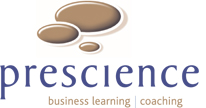Two programmes we have recently run for differing clients have a common theme – equipping line managers with the skills and confidence to have those potentially more challenging conversations with team members and which can have significant consequences depending on how they are managed.
Enabling People Managers
Developed in close conjunction with the client’s HR Team, ‘Enabling People Managers’ is a blended programme equipping line managers with the knowledge, skills and confidence to address two key aspects of the line manager’s responsibility:
- Managing the potentially more involved people management situations – conducting return to works, investigating grievances, or even dealing with allegations of misconduct.
- Reviewing/appraising performance, interviewing and selection.
Tailored specifically to the organisation’s people processes and utilising developed case-studies, main elements to the ‘Enabling People Managers’ programme are:
- Pre-attendance briefing undertaken by the participant’s HR Business Partner to provide a full overview of the processes / procedures underpinning people management activities and where to access necessary information.
- A self-assessment quiz to help participants identify any remaining gaps in their respective procedural/process knowledge.
- A three day workshop providing participants with the opportunity to:
- Develop and practice key 1:1 communication skills using tailored practice scenarios and receive feedback covering selection interviewing, grievance investigation, return to work meetings, performance review and Health and Safety incidents.
- Discuss and determine next step actions they would take in each case based on discussion outcomes and to review recommendations with an in-house HR co-facilitator.
Post the workshop, participants undertake real-time staff management discussions or practice scenarios observed by their respective HR Business Partner and agree on-going development actions to reinforce skills and learning.
Making Conversations Count
The under-pinning drivers of staff engagement aren’t complex – arguably it is about how well we really involve others, listen to people, discuss things with them and afford them the opportunity to contribute and develop. For various reasons, however, deploying such activities can be easier said than done as we grapple with day-to-day pressures in fast paced operational environments and the focus to deliver actions and outputs. Also, as with most of these things, it is a two-way street – some people can make it difficult to engage with them if what they do is seen as presenting problems, complaints or even degrees of passive-aggressiveness.
The Making Conversations Count programme was developed specifically to support operational line managers develop the skills and overcome any reluctance to engage amongst staff members to enable them to have more meaningful and productive discussions.
Conducted over a phased series of half-day workshops involving managers and operating staff, key elements to the Making Conversations Count programme were:
Phase 1: Skills development workshops to enable line managers to:
- Utilise and deploy more considered communication approaches to enable more productive Adult-Adult conversations between line managers and team members
- Respond appropriately to perceived ‘negative’ responses from team members and resolve issues of disagreement and conflict
- Utilise reframing and appreciative enquiry techniques to help move discussions to outcomes and actions supporting more transformational discussions
Phase 2: Real-time ‘issues and constraints’ workshops undertaken with operating staff to:
- Surface and address matters they perceived as inhibiting better communication and interaction with managers and others
- Provide understanding of TA and the impact of non-Adult communication on others
- Help challenge established perceptions of how people viewed their and others’ positions’ within the workplace
Phase 3: Combined management and operating staff workshops to share respective views and perceptions and agree shared actions to help engender improved communication, collaboration and contribution.
Team Coaching
Almost all organisational teams operate in a complex set of dynamics, not only needing to work effectively within the team but, equally importantly, in managing the systems and engaging others outside the team.
In such a context teams need to exercise high levels of collective consciousness, yet all too often even senior teams can somewhat ‘muddle through’ and rationalise or almost turn a blind eye to areas of under-performance and/or dysfunction.
A Team Coaching approach surfaces views/issues held both within the team and by key stakeholders and others outside the team and then provides the team itself with the opportunity to address these in a structured, considered manner.
Supporting a key work team, operating in a business critical area that was under-going significant change, the Team Coaching activity included:
- Discussion and agreement of success factors / measures with senior management
- Structured interviews with representative team members and key stakeholders with a summary report of perceived team performance versus agreed success criteria (Purpose, Process, Contribution, Collaboration, Connection)
- Real-time workshops to share identified areas for team performance improvement and determine/agree actions and outputs


